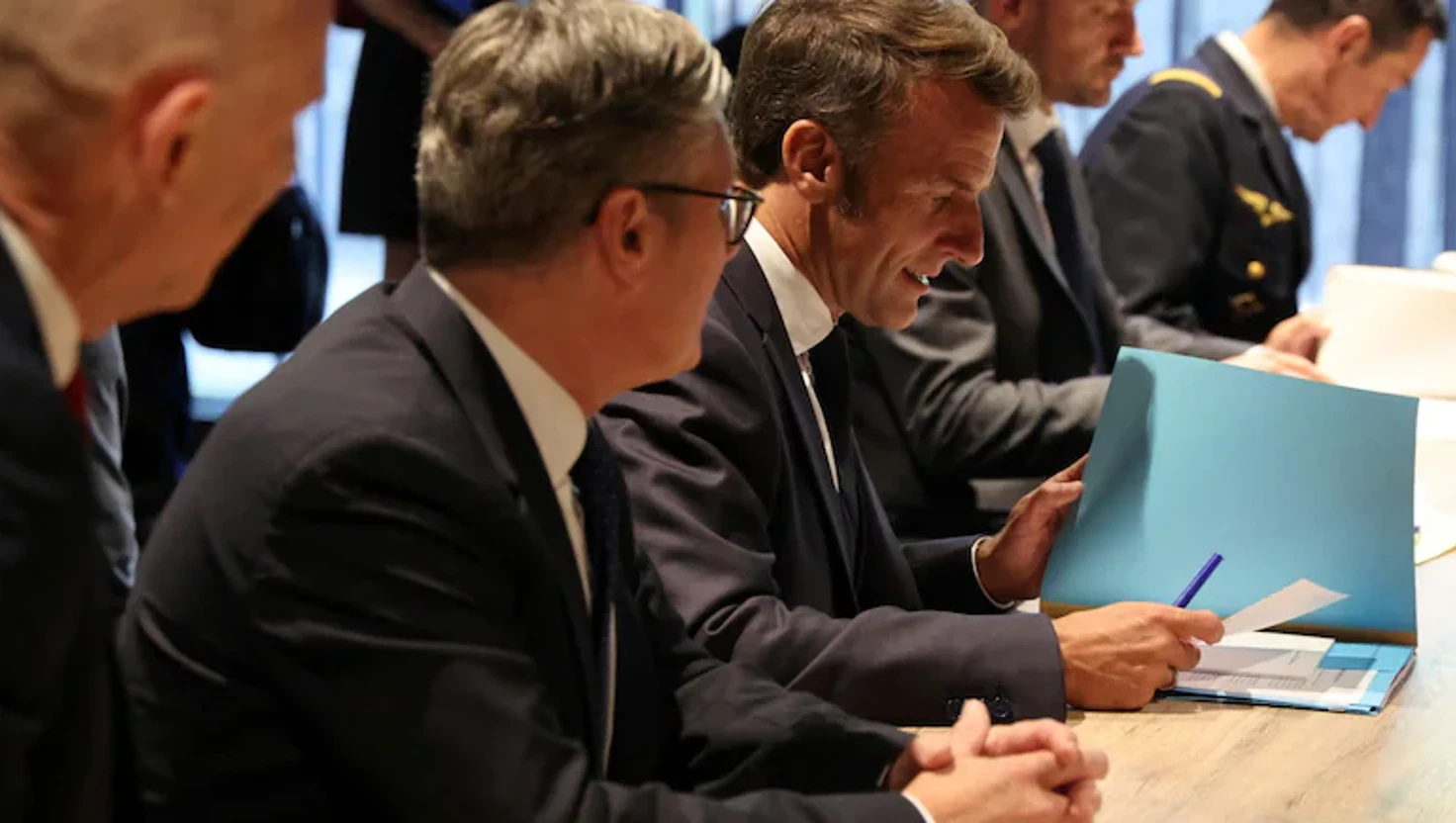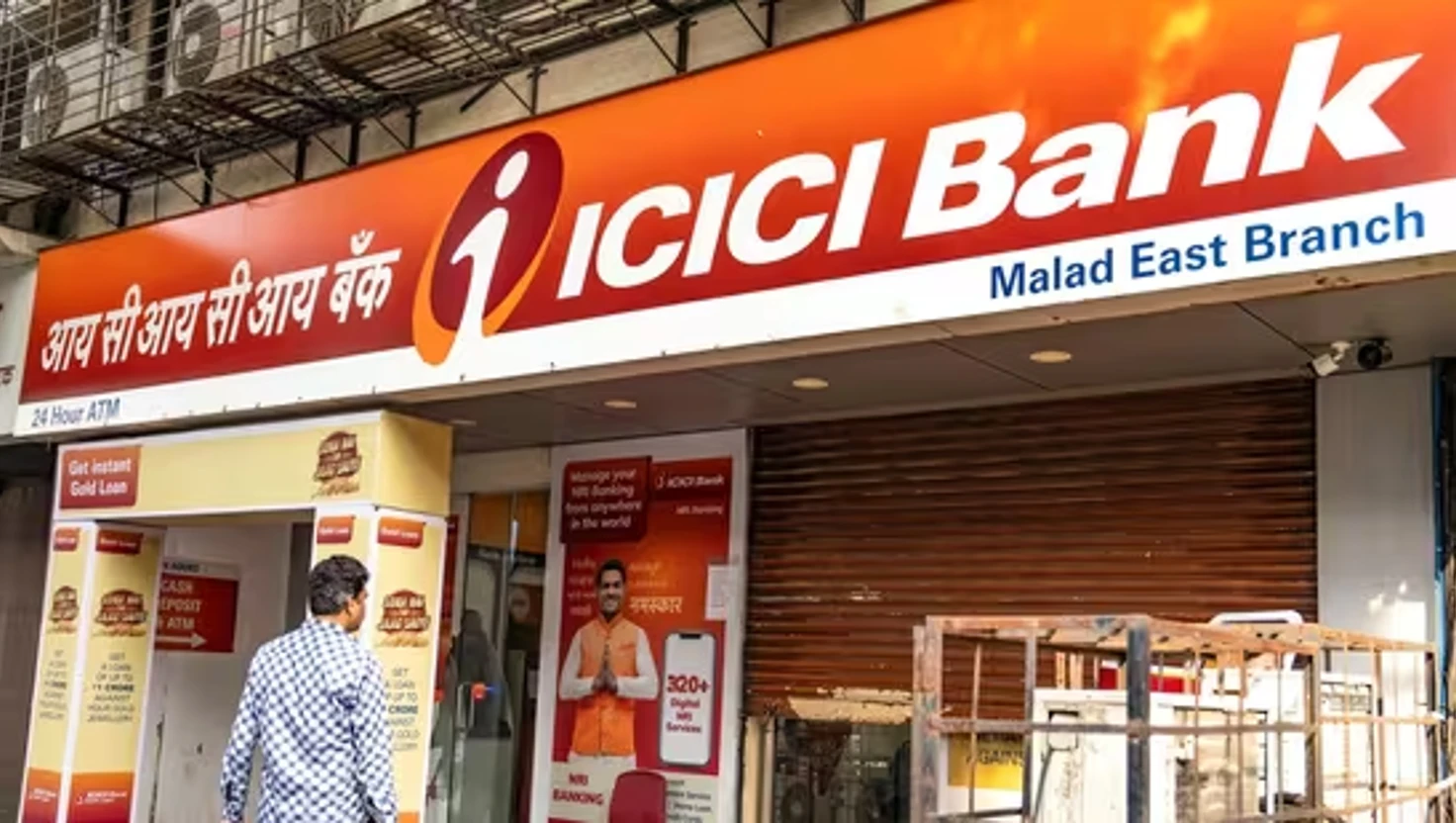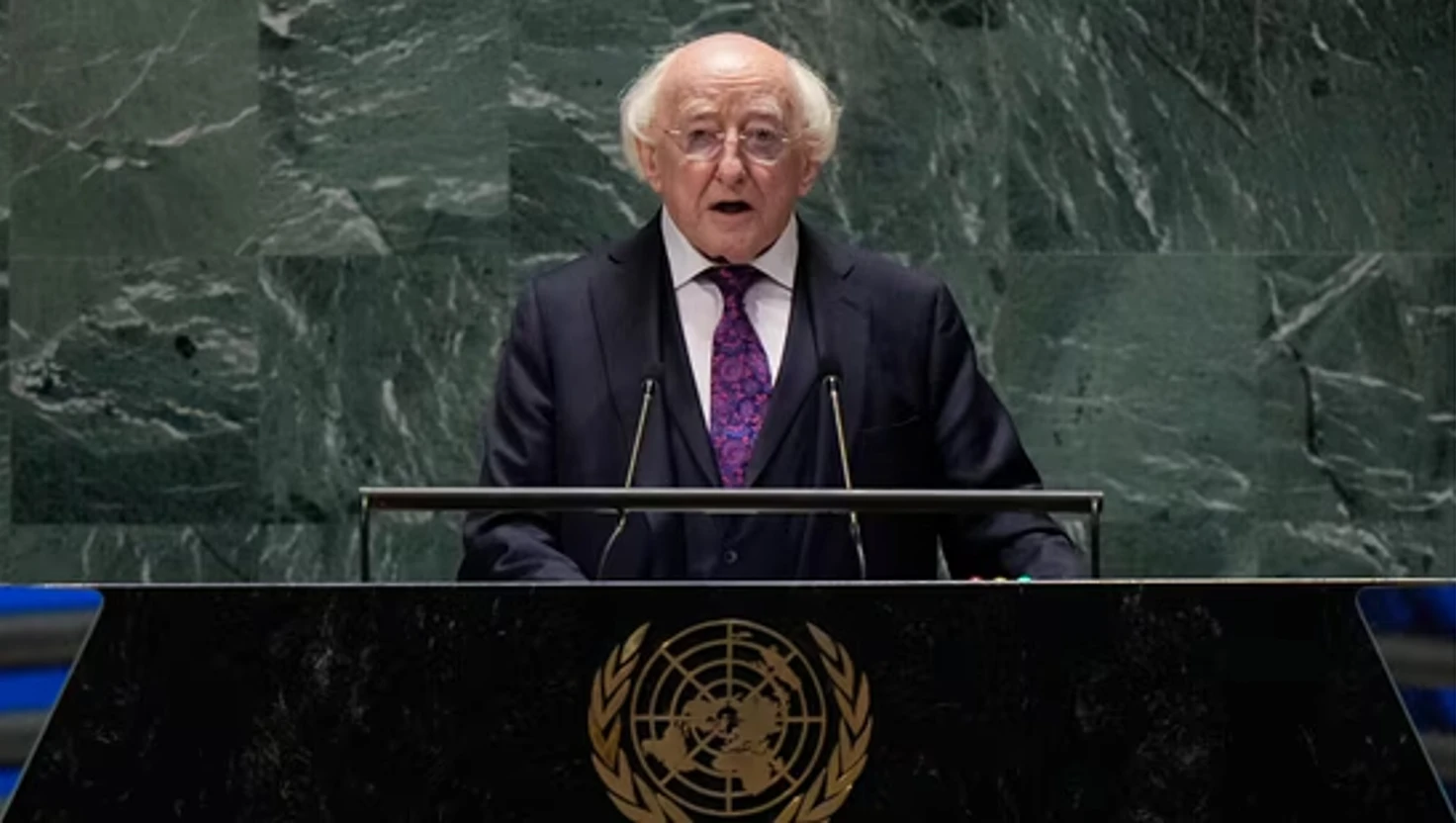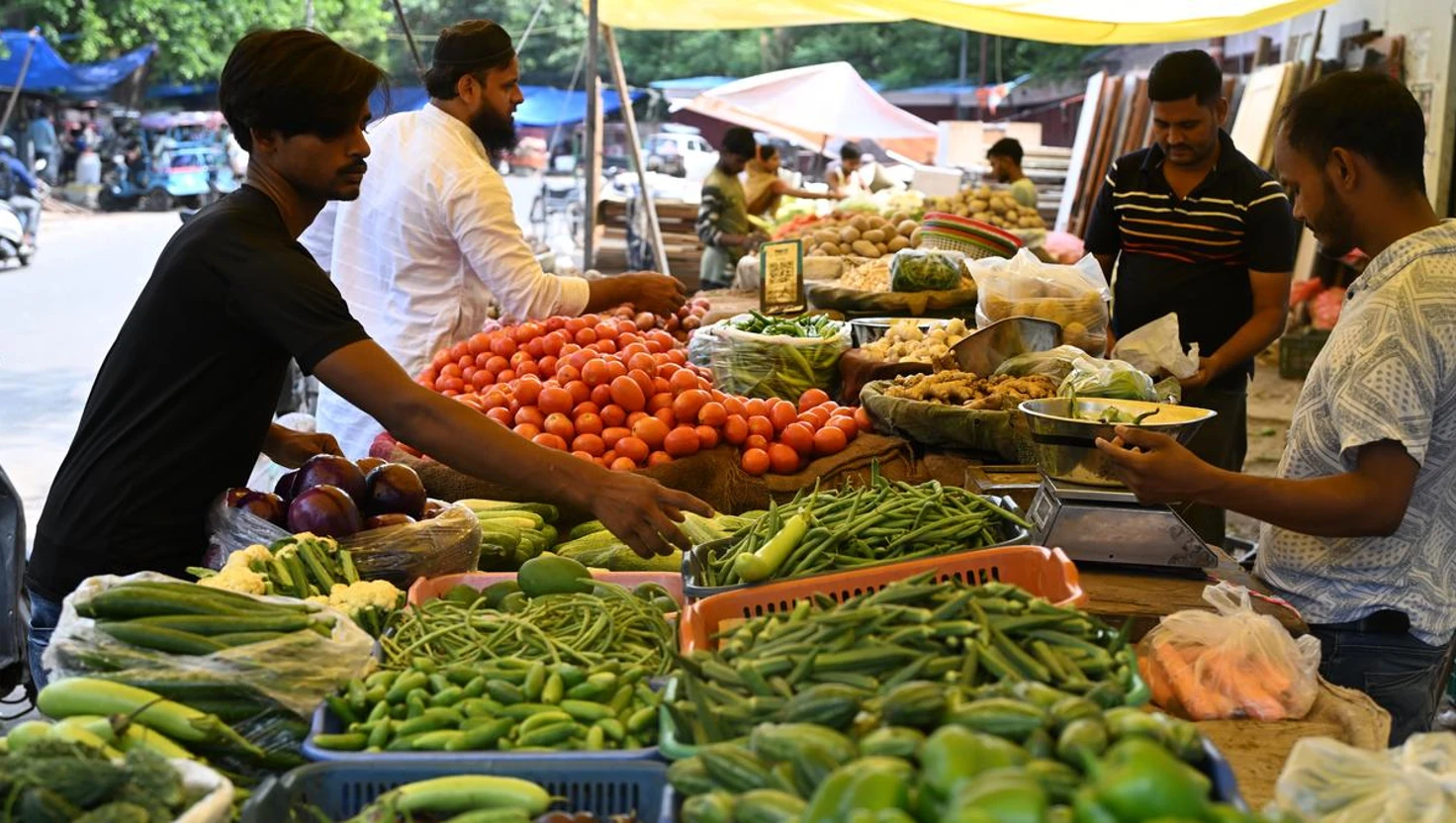UK, France and Germany Prepared to Re-implement Sanctions on Iran Over Nuclear Actions

UK, France and Germany Prepared to Re-implement Sanctions on Iran Over Nuclear Actions
The UK, France, and Germany warn of potential sanctions against Iran's nuclear programme if negotiations do not resume by the end of August 2025.
In a recent communication to the United Nations, the United Kingdom, France, and Germany, collectively known as the E3, have stated their readiness to reinstate sanctions on Iran concerning its nuclear programme. This announcement follows Iran's lack of response to the E3's offer to extend negotiations until the end of August 2025.
Triggering the Snapback Mechanism
The three nations referenced a 'snapback' mechanism in their letter to UN Secretary-General António Guterres. This mechanism, part of the 2015 Joint Comprehensive Plan of Action (JCPOA), allows for the reinstatement of previous sanctions unless Iran engages in productive negotiations to limit its nuclear activities.
The E3's foreign ministers—Jean-Noël Barrot of France, David Lammy of the UK, and Johann Wadephul of Germany—expressed their commitment to employing "all diplomatic tools possible" to prevent Iran from developing a nuclear weapon, a chargeIran vehemently denies. In their letter, they emphasised, "If Iran fails to reach a diplomatic resolution by the end of August 2025 or does not accept the extension opportunity, the E3 are prepared to activate the snapback mechanism."
Iranian Response
Iranian lawmaker Manouchehr Mottaki warned that the country’s parliament is willing to withdraw from the JCPOA should the E3 impose new sanctions. Mottaki's statements were reported by the Iranian news outlet Defa Press. Iran has indicated its desire for further negotiations but insists that existing sanctions must be lifted and its rights to a civilian nuclear programme recognised before any talks can proceed.
A Brief History of the JCPOA
The JCPOA was established in 2015 to curb Iran’s nuclear capabilities in exchange for the lifting of international sanctions. The agreement involved major global powers, including the United States, Russia, and China. However, the United States unilaterally withdrew from the accord in 2018 during President Donald Trump's administration, claiming it did not sufficiently prevent Iran from acquiring nuclear weapons. The US pull-out resulted in the reinstatement of stringent sanctions on Iran.
Following the US exit, Iran began to incrementally breach the agreement's terms. Reports by the International Atomic Energy Agency (IAEA) indicated that Iran had amassed over 400 kilograms of uranium enriched to 60% purity, significantly exceeding levels permitted for civilian use and nearing weapons-grade levels.
Escalating Tensions and Recent Conflict
Tensions further heightened in June when Iran suspended its cooperation with the IAEA amid rising conflicts involving Israel. This followed Israeli military actions aimed at crippling Iran's nuclear framework, which coincided with a 12-day conflict in the region. The E3 have reiterated their concerns over Iran's withdrawal from IAEA protocols and its escalating nuclear activities.
Statements from France’s Foreign Minister
French Foreign Minister Jean-Noël Barrot underscored the E3's position, stating, "Iran must not be allowed to acquire nuclear weapons under any circumstances." He asserted that if Iran continues to breach its international obligations, the three nations would reinstate the sanctions lifted in 2015, which included arms embargoes and banking restrictions.
Outlook and Next Steps
As of now, the E3 maintain their commitment to resolving the ongoing crisis through diplomatic negotiations. However, the prospective implementation of sanctions looms large if Iran does not demonstrate a willingness to re-engage in dialogue. The ministers have made it clear that their legal grounds for triggering sanctions are unequivocal, given Iran’s non-compliance with the JCPOA.
In light of recent developments, the E3 countries remain optimistic about achieving a negotiated resolution, while also prepared to act decisively if Iran continues to evade its obligations under international agreements. As the end of August approaches, scrutiny will intensify regarding both Iran's actions and the E3's response.
Global Reactions and Future Implications
The international community is closely monitoring these developments, particularly in light of the potential implications for regional stability and global nuclear non-proliferation efforts. With negotiations stalled and tensions rising, the coming weeks will be critical in determining the trajectory of Iran's nuclear programme and the responses of the E3 and other governing bodies.
The BBC has reached out to the UK Foreign Office for further comments and is awaiting responses from the Iranian mission to the UN regarding the recent statements made.
Triggering the Snapback Mechanism
The three nations referenced a 'snapback' mechanism in their letter to UN Secretary-General António Guterres. This mechanism, part of the 2015 Joint Comprehensive Plan of Action (JCPOA), allows for the reinstatement of previous sanctions unless Iran engages in productive negotiations to limit its nuclear activities.
The E3's foreign ministers—Jean-Noël Barrot of France, David Lammy of the UK, and Johann Wadephul of Germany—expressed their commitment to employing "all diplomatic tools possible" to prevent Iran from developing a nuclear weapon, a chargeIran vehemently denies. In their letter, they emphasised, "If Iran fails to reach a diplomatic resolution by the end of August 2025 or does not accept the extension opportunity, the E3 are prepared to activate the snapback mechanism."
Iranian Response
Iranian lawmaker Manouchehr Mottaki warned that the country’s parliament is willing to withdraw from the JCPOA should the E3 impose new sanctions. Mottaki's statements were reported by the Iranian news outlet Defa Press. Iran has indicated its desire for further negotiations but insists that existing sanctions must be lifted and its rights to a civilian nuclear programme recognised before any talks can proceed.
A Brief History of the JCPOA
The JCPOA was established in 2015 to curb Iran’s nuclear capabilities in exchange for the lifting of international sanctions. The agreement involved major global powers, including the United States, Russia, and China. However, the United States unilaterally withdrew from the accord in 2018 during President Donald Trump's administration, claiming it did not sufficiently prevent Iran from acquiring nuclear weapons. The US pull-out resulted in the reinstatement of stringent sanctions on Iran.
Following the US exit, Iran began to incrementally breach the agreement's terms. Reports by the International Atomic Energy Agency (IAEA) indicated that Iran had amassed over 400 kilograms of uranium enriched to 60% purity, significantly exceeding levels permitted for civilian use and nearing weapons-grade levels.
Escalating Tensions and Recent Conflict
Tensions further heightened in June when Iran suspended its cooperation with the IAEA amid rising conflicts involving Israel. This followed Israeli military actions aimed at crippling Iran's nuclear framework, which coincided with a 12-day conflict in the region. The E3 have reiterated their concerns over Iran's withdrawal from IAEA protocols and its escalating nuclear activities.
Statements from France’s Foreign Minister
French Foreign Minister Jean-Noël Barrot underscored the E3's position, stating, "Iran must not be allowed to acquire nuclear weapons under any circumstances." He asserted that if Iran continues to breach its international obligations, the three nations would reinstate the sanctions lifted in 2015, which included arms embargoes and banking restrictions.
Outlook and Next Steps
As of now, the E3 maintain their commitment to resolving the ongoing crisis through diplomatic negotiations. However, the prospective implementation of sanctions looms large if Iran does not demonstrate a willingness to re-engage in dialogue. The ministers have made it clear that their legal grounds for triggering sanctions are unequivocal, given Iran’s non-compliance with the JCPOA.
In light of recent developments, the E3 countries remain optimistic about achieving a negotiated resolution, while also prepared to act decisively if Iran continues to evade its obligations under international agreements. As the end of August approaches, scrutiny will intensify regarding both Iran's actions and the E3's response.
Global Reactions and Future Implications
The international community is closely monitoring these developments, particularly in light of the potential implications for regional stability and global nuclear non-proliferation efforts. With negotiations stalled and tensions rising, the coming weeks will be critical in determining the trajectory of Iran's nuclear programme and the responses of the E3 and other governing bodies.
The BBC has reached out to the UK Foreign Office for further comments and is awaiting responses from the Iranian mission to the UN regarding the recent statements made.

Global Fans and Companies Rally for Release of Rajinikanth's 'Coolie'
Ahead of its release, Rajinikanth's film 'Coolie' prompts holidays, free tickets, and employee outings across India and Singapore.
| 2025-08-14

ICICI Bank Lowers Minimum Balance Requirement After Customer Backlash
ICICI Bank reduces minimum balance for new urban accounts after significant customer feedback, now setting it at ₹15,000.
| 2025-08-14

India Seeks to Host 2030 Commonwealth Games as Bid is Officially Approved
The Indian Olympic Association has sanctioned the bid for the 2030 Commonwealth Games, with Ahmedabad proposed as the host city.
| 2025-08-14

Ireland President ‘unequivocally’ condemns attacks on Indian community
Irish President Michael D. Higgins condemns recent violent attacks on the Indian community, emphasising their contributions to Irish society.
| 2025-08-13

India's Retail Inflation Hits Eight-Year Low at 1.55% in July
India's retail inflation fell to 1.55% in July 2025, the lowest since 2017, primarily due to lower food prices, impacting farmers.
| 2025-08-13




